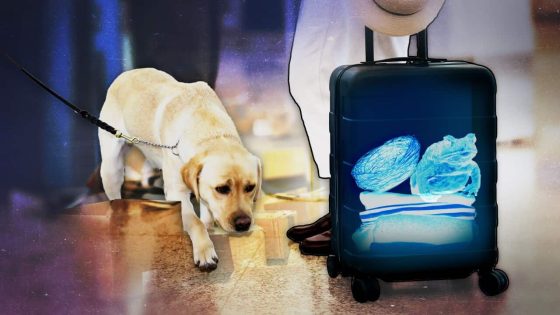Key Points
- In 2023, biosecurity officers seized hundreds of tonnes of items deemed a risk to Australia at airports nationwide.
- The Department of Agriculture, Forestries and Fisheries revealed some of its weirdest finds, including live animals.
- Consult our map to see the most bizarre item confiscated at your nearest airport.
Nearly 400,000 items were confiscated from passengers trying their luck at Australia’s international airports, according to the Department of Agriculture, Fisheries and Forestry (DAFF).
Biosecurity detector dogs intercepted a further 32,000 items last year.
DAFF revealed that biosecurity breaches also prompted the cancellation of 22 visas between October 2019 and December 2023.
What kind of items are considered a biosecurity risk?
Common household items are regularly found in suitcases, such as spices or beef, but other finds are a little more bizarre.

Last year, a Canberra biosecurity officer found a traveller trying to import water considered sacred from the Ganges River in India.
In Perth, a passenger trying to enter the country had packed a whole banana tree, complete with its root system and soil, into their luggage.
DAFF said intercepting these items during biosecurity screenings is vital to protecting Australia’s $78 billion agriculture industry.

“Keeping Australia free of exotic pests and diseases that wreak havoc in other countries is one of our most important tasks as a nation,” a DAFF spokesperson said in a statement.
The department warned that those failing to declare risky items can cop significant financial penalties, with fines issued ranging from $626 to $6,260.
Source Agencies



